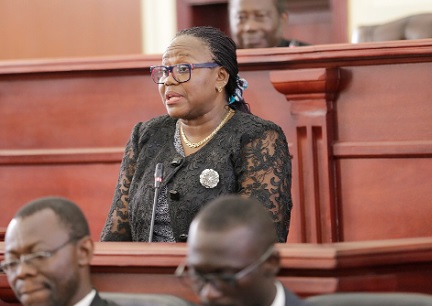The Supreme Court has thrown out another injunction application that sought to halt the impeachment process against the Chief Justice, Justice Gertrude Sackey Torkornoo.
In 4-1 majority decision today [May 21], the court presided over by the Acting Chief Justice, Justice Paul Baffoe-Bonnie held that the application by the Centre for Citizenship, Constitutional and Electoral Systems (CenCES) had no merit.
Justices Baffoe-Bonnie, Issifu Omoro Tanko Amadu, Emmanuel Yonny Kulendi and Henry Anthony Kwofie were on the majority side, while Justice Yaw Darko Asare dissented.
This is the second time the Supreme Court has dismissed an injunction application seeking to halt the impeachment process, with the first one being an application by the Member of Parliament for Old Tafo Panrono, Vincent Ekow Assafuah
CenCes , a civil society organisation, filed a writ at the Supreme Court arguing that the manner in which the impeachment process of the Chief Justice had been handled was against due process and therefore sins against many provisions of the constitution.
It therefore wanted the Supreme Court to put on hold the work of the five-member committee probing the petitions against the Chief Justice pending the final determination of the substantive writ.
Submissions
Making a case for the injunction application, counsel for CenCES , Jacob Acquah-Sampson, argued that President Mahama failed to provide Justice Torkornoo with the prima facie determination made by him in consultation with the Council of State, leading to the setting up of the committee and the suspension.
In response, the Deputy Attorney General-General, Dr Justice Srem-Sai described the application as speculative and an abuse of the court process, urging the court to dismiss it.
It was his contention that all the constitutional requirements regarding the impeachment process had been adhered to by the President including the supply of the prima facie determination to persons expected to have them by law.

